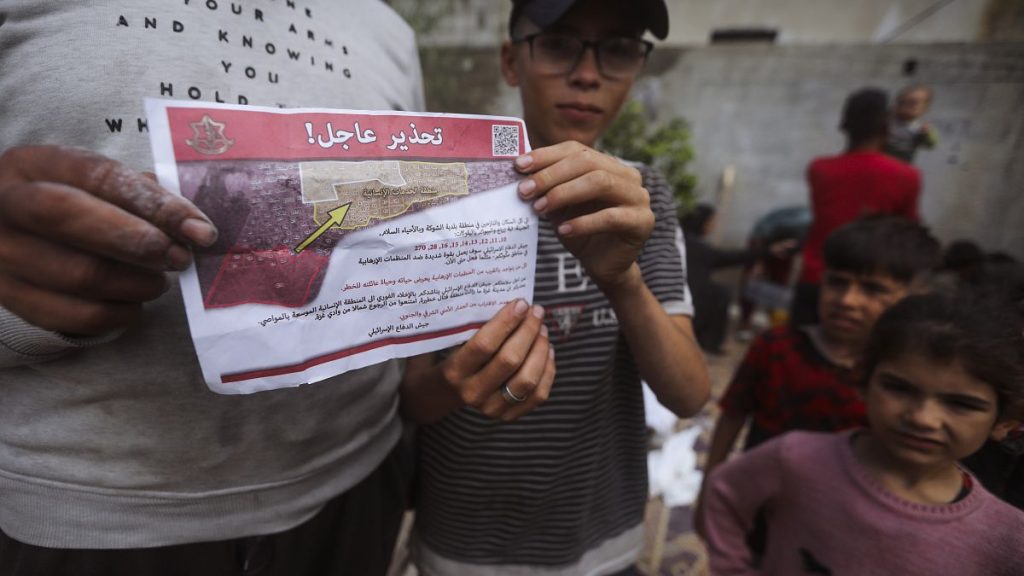Hamas, a militant organization that controls the Gaza Strip, has agreed to a ceasefire proposal brokered by Egypt and Qatar to end a seven-month conflict with Israel. However, despite this announcement, Israel has stated that it will continue its military operations in Gaza. The ceasefire announcement came as the Israeli military issued an evacuation order to 100,000 Palestinians in the southern city of Rafah. Despite the ongoing military operations, Palestinians in Rafah were seen celebrating on the streets upon hearing the news of the ceasefire agreement.
The conflict between Hamas and Israel has been ongoing for seven months, resulting in significant casualties and destruction on both sides. The ceasefire proposal, which was brokered by Egypt and Qatar, represents a potential opportunity for both parties to de-escalate the situation and avoid further bloodshed. Hamas’ decision to accept the proposal indicates a willingness to pursue diplomatic solutions to the conflict, despite Israel’s insistence on continuing its military operations in Gaza.
The Israeli military’s evacuation order to 100,000 Palestinians in Rafah indicates a heightened level of tension and concern for the safety of civilians in the area. The ongoing military operations in Gaza have raised fears of further violence and casualties, leading to increased pressure on both Hamas and Israel to reach a resolution to the conflict. Despite these challenges, the announcement of the ceasefire proposal and Hamas’ acceptance of it offer a glimmer of hope for a peaceful resolution to the conflict.
The celebrations in Rafah following Hamas’ agreement to the ceasefire proposal demonstrate the desire of the Palestinian people for an end to the violence and suffering caused by the conflict with Israel. The ceasefire agreement represents a potential opportunity for a temporary halt to hostilities and a chance for both parties to engage in negotiations to address the underlying issues fueling the conflict. While the situation remains tense and uncertain, the willingness of Hamas to accept the ceasefire proposal indicates a willingness to explore diplomatic solutions to the conflict.
The ongoing conflict between Hamas and Israel has resulted in significant humanitarian challenges and casualties, with civilians bearing the brunt of the violence on both sides. The ceasefire proposal offers a possible path towards de-escalation and a reduction in the suffering experienced by the people of Gaza. It is essential for both Hamas and Israel to prioritize the well-being and safety of civilians in their decision-making and to work towards a sustainable and lasting peace agreement that addresses the root causes of the conflict.
In conclusion, the agreement by Hamas to accept a ceasefire proposal brokered by Egypt and Qatar offers a potential opportunity for a temporary halt to hostilities in the conflict with Israel. Despite the ongoing military operations and evacuation orders issued by Israel, the celebrations in Rafah demonstrate the desire of the Palestinian people for peace and an end to the violence. It is crucial for both parties to prioritize the well-being of civilians and to engage in diplomatic negotiations to address the underlying issues fueling the conflict. The ceasefire proposal represents a chance for both Hamas and Israel to de-escalate the situation and work towards a sustainable and lasting peace agreement that ensures the safety and security of all parties involved.















